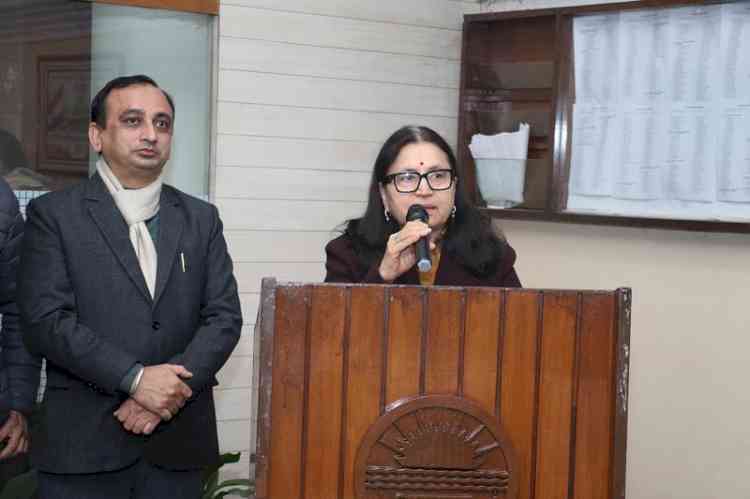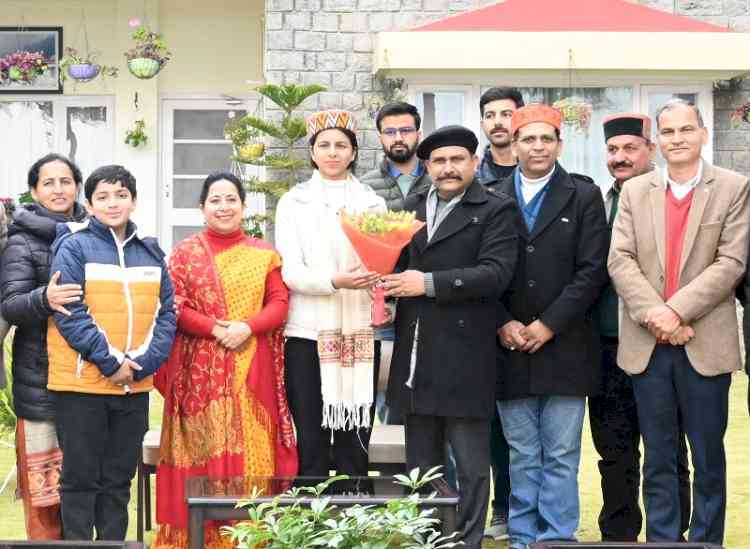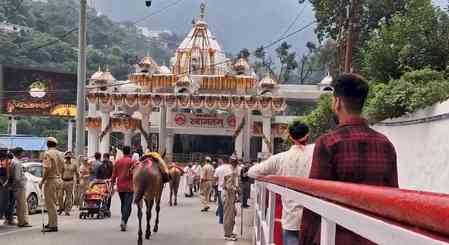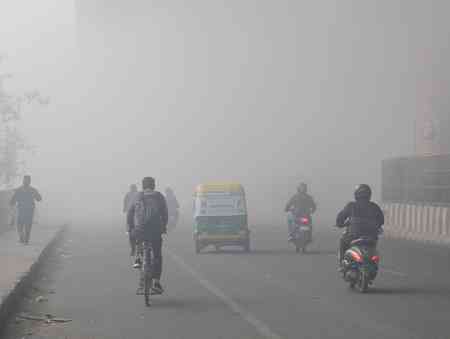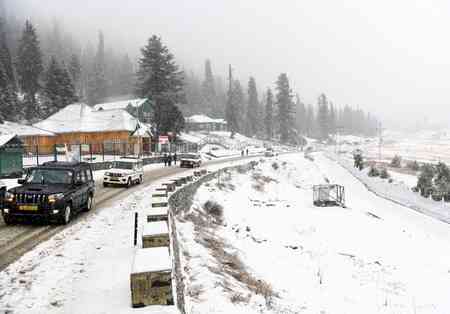Event for Remembrance of Martyrs in Jallianwala Bagh Massacre
Department of Library & Information Science, Panjab University, Chandigarh organized an event on Friday for Remembrance of Martyrs in Jallianwala Bagh Massacre.
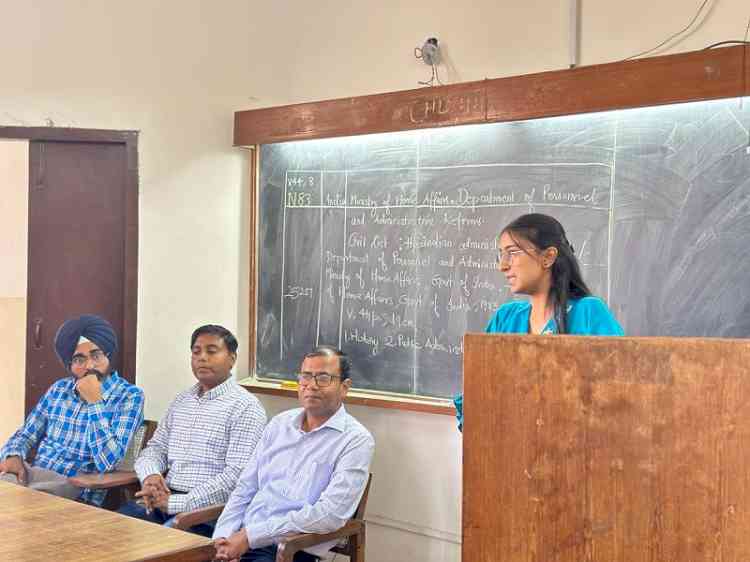
Chandigarh April 12, 2024: Department of Library & Information Science, Panjab University, Chandigarh organized an event on Friday for Remembrance of Martyrs in Jallianwala Bagh Massacre.
Chandigarh April 12, 2024: Department of Library & Information Science, Panjab University, Chandigarh organized an event on Friday for Remembrance of Martyrs in Jallianwala Bagh Massacre.
Prof. Rupak Chakravarty, Chairperson, initiated the event with a brief introduction and history about this day. The Jallianwala Bagh massacre was a pivotal event in India's struggle for independence. It occurred on April 13, 1919, in Amritsar, Punjab, during a gathering of people to celebrate Baisakhi. Brigadier-General Reginald Dyer, the British officer in charge, ordered his troops to open fire on the crowd without warning, resulting in the deaths of hundreds of unarmed civilians. The massacre was preceded by a series of events, including the passage of the Rowlatt Act, which authorized the government to imprison individuals associated with seditious activities without trial. Mahatma Gandhi had initiated Satyagraha, a nonviolent protest, against the Rowlatt Act.
The Jallianwala Bagh massacre had far-reaching consequences. Martial law was imposed in several districts, and widespread unrest and protests erupted across the country. The incident sparked international outrage and led to the formation of the Disorders Inquiry Committee, also known as the Hunter Commission, to investigate the massacre. General Dyer, who ordered the firing, was censured by the commission and relieved of his command. Michael O'Dwyer, the Lieutenant Governor of Punjab who had approved of Dyer's actions, was assassinated by Udham Singh, an Indian freedom fighter, in 1940.
The Jallianwala Bagh massacre symbolized the brutality of colonial rule and became a turning point in India's struggle for independence. It revealed the flaws and oppressive nature of the British administration, eventually leading to their departure from India. Today, Jallianwala Bagh stands as a memorial and a reminder of the sacrifices made by the Indian people in their fight for freedom.


 City Air News
City Air News 
